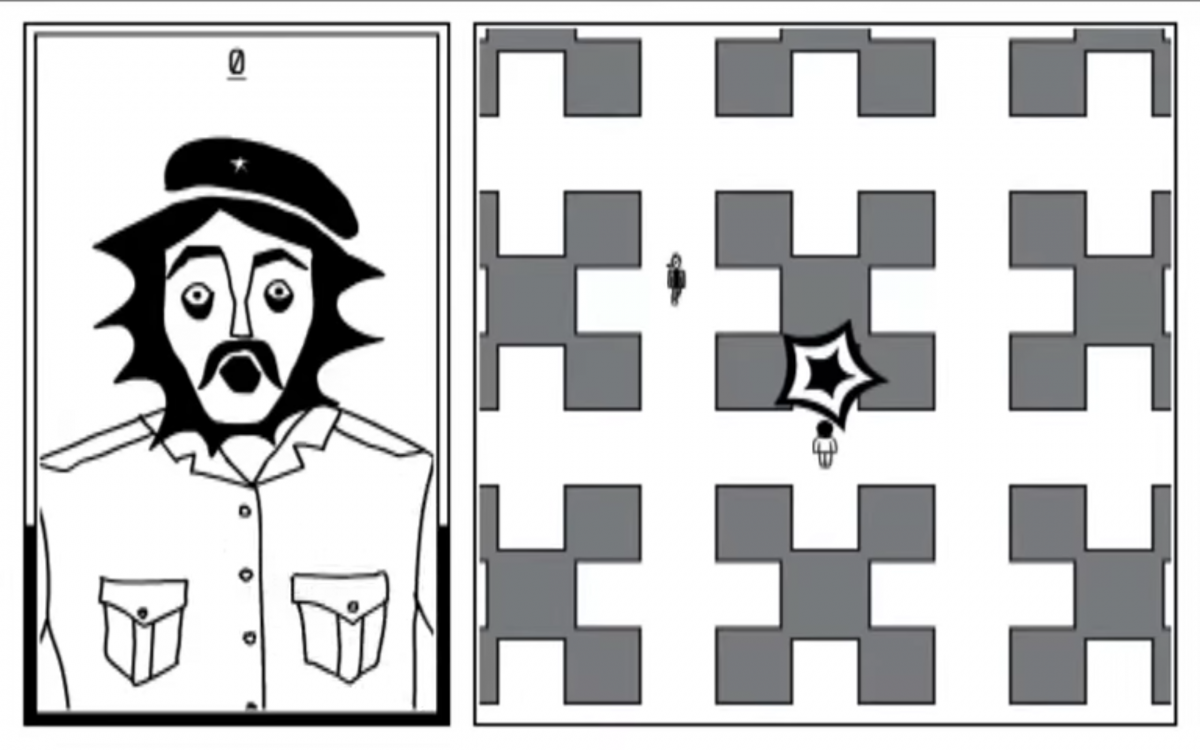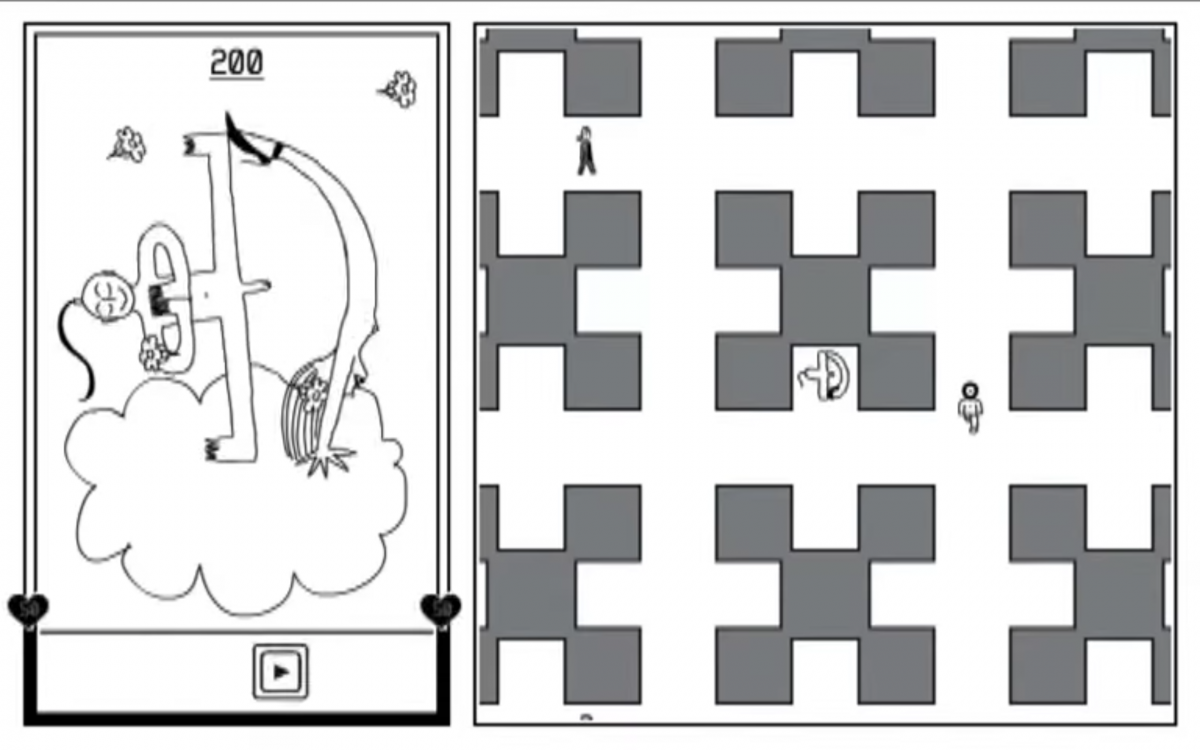
LEA SCHÖNFELDER
Posted on November 18th, 2016
by Sofia Staab-Gulbenkian
Lea Schönfelder
Age: 29
Hometown: Heidenheim an der Brenz, Germany
Prior Education: School of Art and Design Kassel, Film Academy Baden-Wuerttemberg
Current City: Oberursel, Germany
Role in UCLA Game Lab: Artist in Residence, 2012
Games
Haus Quest, Flash game, p.p. Deutsches Haus at New York University
Perfect Woman, Perfect Woman PC & Mac, Kinect game
Kartenspiel der Verlogenheit, Card game
Stagediver, Flash game hunt
Stagediver – World Tour, Multiplayer flash game
Installation Harmonic Flight, Facebook game
Ute, Flash game (NSFW)
Ulitsa Dimitrova, Point & click adventure
Huong Jiao Ping, Point & click adventure
Notable Shows/Exhibitions/Awards
Museum für Ägyptische Kunst, München, Kino der Kunst (Perfect Woman) 2015
ZKM_Gameplay, Karlsruhe (Perfect Woman) 2014
GaymerX, San Francisco (Perfect Woman) 2014
Games for Change, New York (Perfect Woman) 2014
Museum of Design, Atlanta, XYZ: Alternative Voices in Game Design (Ute) 2013
UCLA Game Art Festival, Los Angeles (Perfect Woman, Stagediver) 2013
What are you doing now?
I’m working at flaregames GmbH, a mobile games company, based in Karlsruhe, Germany. I’m employed as a game designer; my daily tasks range from finding completely new ideas for feature design, balancing, level design, and prototyping to discussions about the current best practices, new developments in the market and evaluation of other games. On the side I am an active part of the independent games scene as a judge of the Independent Games Festival, organizer of the European Innovative Games Showcase at GDC Europe, and a speaker at various conferences and festivals.
How would you describe your experience at UCLA Game Lab?
The UCLA Game Lab is special because of the people that work there. Creatives of all different backgrounds meet and work together here. They come from fine arts, technology, sociology, design, politics, etc. and they have a common goal: making games. As a result, the games that are worked on at the lab are different from the games we know from the main stream game market. They try something new, dare, experiment, sometimes fail – but always push the boundaries. That is how you make a medium develop beyond what it has been for many years.
What did you find valuable at UCLA Game Lab? What did you learn during your time here?
I learned a lot. I learned from other people experiences, and I learned that a game might become much better if you co-design it with someone else. Because of the Game Lab’s close connection to the Design|Media Arts department within UCLA, I also developed a bigger picture of the field we’re working in. For me, it was valuable to talk to the many smart people at the Game Lab. You talk about existing games, about your own ideas, and also about how you could execute them. Without the Game Lab I wouldn’t have been able to make Perfect Woman, which has been my most recognized game so far.

What would you tell other prospective students about UCLA Game Lab?
If you are fascinated by games and interactive experiences, but don’t want to reproduce what you already know, or if you want to experiment,think, or develop, then the Game Lab is the place to study for you. You shouldn’t be afraid of technology, but rather think of it as a tool to make an artistic statement. In the Game Lab, people are artists who make games, not gamers who make art.
What do you want to do in the future?
I want to make my living by designing games. I work in a free-to-play mobile games company right now, which is great because after my more artistic studies, I am learning a lot about the best practices of the industry. My future goal, though, is to incorporate the things I learn and have learned into personal, artistic games again that still pay my bills.


